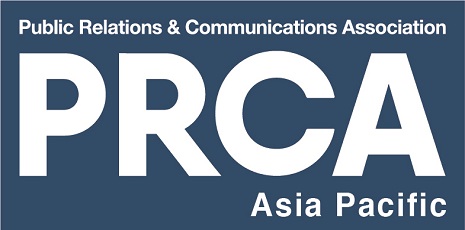Why an open mind gets the best PR talent

By Eva Sogbanmu, Head of Communications, Asia-Pacific, JLL
I’ve worked with plenty of excellent colleagues who studied PR at university. But while it may seem like the natural starting point for a career in communications, we must never be overreliant on it as a source of talent.
When I was asked by the PRCA to provide my perspective on the new Asia-Pacific PR and Communications Census, it got me thinking about routes into the profession. I’m the first to admit that I fell into a career in PR, having graduated with a degree in English literature and very little idea of what I wanted to do next. So while my personal example may not be one to emulate, I think we need to work hard to demonstrate that PR is a rewarding career to consider for those who are not marketing, communications, or business graduates.
The Census shows us that most of Asia-Pacific’s PR pros (94%) have a degree and that nearly half (48%) studied the aforementioned disciplines – PR is the most common subject, studied by 29% of those, with another 19% having studied business or management. Looking at the Middle East Census, the figures are very similar. However, in my native country, 80% of respondents to the UK PR Census 2019 had been to university, but of those only 15% studied PR.
So what does this tell us about the different ways people embark on a PR career? One conclusion is that in Asia-Pacific and the Middle East, people tend to stick to more vocation-based career tracks; whereas in the UK, perhaps there is an acceptance that a more general undergraduate degree is simply a starting point.
For me, the basic competencies I look for in a PR professional are the ability to write well and express ideas clearly. They should also be business literate. However, beyond those basic skills, what’s important is to be able to think critically, be curious about the world, and have the ability to ask smart questions. These skills are not exclusive to a degree in PR – they are nurtured in many disciplines.
In fact, some of the most talented people I’ve met in the profession come from completely different academic backgrounds – whether it’s languages, science or engineering. I’ve come across many who have started out in an entry-level job straight from school and gone on to have fantastic careers. The absence of a degree hasn’t held them back, nor should it hold you back from hiring great talent. For this reason, I hope that in the long term, the numbers of APAC Census respondents with a non-PR degree, or without a degree, rise.
Alongside a more diverse pool of talent, I’d hope to see a rise in the number of PR practitioners with a professional qualification. PRCA MENA regional board member Alex Malouf comments in the Middle East Census that while PR professionals “keep talking about wanting to have a seat at the management table… too few of us are willing to get certified, which is the basis for any profession”. I’d be wary of employers, clients or professional bodies going too quickly down the route of demanding certification, but it’s definitely the right direction of travel. It’s also completely right that we commit to upskilling and continuing to learn throughout our careers.
As PR employers, our doors should be open to everyone, regardless of background. And once they’re through that door, there should be plenty of opportunities for them to grow, to learn, and to enjoy a great career.
